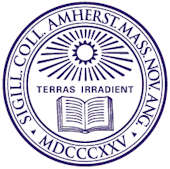Perched between English and American Studies, I remain fascinated with how literature interacts with social structures and participates in social change.
My particular focus is on the literature of the mid-nineteenth century United States: the well known works of the American Renaissance but also less canonical forms of writing from the reform literature of the abolitionist or temperance movements to school books. I find that it is often in these more ephemeral genres that the anxieties and desires of a period can be most clearly apprehended. In my first book, Touching Liberty: Abolition, Feminism and the Politics of the Body (California,1993) I looked at how the political rhetoric of the abolitionist and feminist movements, and their ways of talking about the body, left traces on a wide range of nineteenth-century American writing, not only fiction or personal narratives that directly addressed these political issues, but even the poetry of Walt Whitman and Emily Dickinson.
My most recent book also explores the question of who gets to be included in the national story. In Dependent States: The Child's Part in Nineteenth-Century American Culture (Chicago, 2005), I ask what happens to our understanding of U.S. culture once we acknowledge children as historical actors, recognizing them as participants in the making of social and cultural meaning. I believe that age, just as much as class, race or gender, provides a salient category for analysis, and that paying attention to age changes not just what we see but what questions we ask, and our very methods of interpretation. Together with other Five-College colleagues I have helped launch the new Journal of the History of Childhood and Youth, the founding journal for this burgeoning field.
In my research on childhood I strove to include children's voices and perspectives, and inevitably that entailed mining manuscript sources. Children after all, rarely have access to the kinds of cultural or monetary capital that would enable them to get their words into print. I am presently juggling two projects that have grown out of my archival research in childhood studies. The Unpublished Republic looks at manuscript books, a form of literary production that was generally not intended for publication, and that therefore proves useful for exploring the contours of the public sphere, and the mediums and limits of inclusion in it.
The manuscript books I am studying range from a library of tiny picture-books made by two generations of children in the same Boston family, or a friendship album made by a young man from China for his teacher at a Foreign Mission school in Connecticut, to Julia Ward Howe's 1846 unpublished novel about a hermaphrodite. Closed out from print by age, race, and subject matter, these manuscript and the literary practices that created them forge alternative public spheres that stand in self-conscious juxtaposition to and conversation with the realm of printed things. In this work too I see literature as a form and site of enfranchisement. In the Archives of Childhood explores various ways that we strive to hold our relation to the past, theorizing the ties between archival work, library and museum collections, memory, and the personal past that is childhood.
Experience
-
–presentL Stanton Williams 1941 Professor of American Studies and English, Amherst College
Honours
Fellowships from the American Council of Learned Societies, the National Endowment for the Humanities, the Fulbright Association, and at the Newberry Library, Winterthur, and the Stanford Humanities Center
- Amherst, MA, USA
- Article Feed
- Joined


